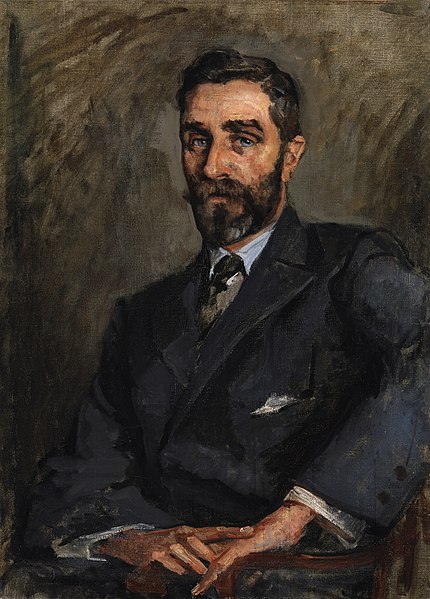The Roger Casement Commemoration and Re-interment Association are holding their annual wreath-laying ceremony outside Pentonville Prison, on Caledonian Road, London this Sunday, August 3 at 1.30pm
Tributes will be paid by a number of speakers from across Britain and Ireland, and there will also be lament played on the uillean pipes in honour of the great patriot.
Of the 16 men executed in 1916, Roger Casement was the only one executed outside Ireland, and the only one known to have made a request concerning his final resting place.
“Don’t let my body lie here – get me back to the green hill by Murlough – by the McCarry’s house – looking down on the Moyle. That’s where I’d like to be now – and that’s where I’d like to lie,” he said.
Casement was referring to Murlough Bay in County Antrim.
It has been said that Éamon de Valera never met a British government minister without requesting the return of Casement’s remains. Eventually, in 1965, the Labour Government under Harold Wilson agreed to the repatriation of his body.
Casement’s remains were returned and given a state funeral in Dublin. He was reinterred in Glasnevin Cemetery, despite his stated wish to be buried in County Antrim. The decision was made to avoid provoking unionist tensions.
 Portrait of Roger Casement, Artist: Sarah Henrietta Purser, 1848-1943. Image in public domain
Portrait of Roger Casement, Artist: Sarah Henrietta Purser, 1848-1943. Image in public domainCareer, knighthood, and the struggle for Irish freedom
Sir Roger Casement, born in Dublin in 1864, was a British diplomat and Irish nationalist executed for treason in 1916 following the Easter Rising.
His father was from Belfast with Antrim roots; his mother, Anne Jephson, came from a Church of Ireland family based in Dublin, with some genealogical ties to Mallow, Co. Cork.
She died when Roger was nine, after which the family relocated to County Antrim to be near relatives. He attended the Diocesan School in Ballymena, later incorporated into Ballymena Academy.
Casement joined the Gaelic League in 1904 and was impressed by the newly formed Sinn Féin party in 1905, founded by Arthur Griffith, which advocated for Irish independence.
He worked for the British Foreign Office, earning renown for his humanitarian investigations into atrocities in the Congo Free State and Peru. In recognition, he was knighted in 1911.
Disillusioned by colonial abuses, Casement became increasingly opposed to imperialism and aligned with Irish republicanism.
Trial and execution
During World War I, Casement travelled to Germany to seek arms and support for a rising in Ireland. In April 1916, he was landed by German U-boat at Banna Strand, County Kerry, but was captured shortly after and imprisoned in the Tower of London.
He was stripped of his knighthood and tried for treason under the Treason Act 1351. The prosecution faced challenges because the alleged acts occurred outside British territory. However, the court interpreted the unpunctuated original Norman French version of the Act in such a way—by inserting a comma—that allowed for a conviction. Casement later wrote that he was to be “hanged on a comma.”
To sway public opinion, the British government circulated extracts from what became known as the Black Diaries, which allegedly contained explicit accounts of homosexual activity. Their authenticity remains disputed. Some believe they were forgeries intended to discredit him. The diaries are held in the UK National Archives, while other trial exhibits are housed in the Crime Museum of the Metropolitan Police.
Aftermath
Casement’s appeals were unsuccessful. Calls for clemency came from figures including Sir Arthur Conan Doyle, W. B. Yeats, and George Bernard Shaw.
His knighthood was officially revoked on 29 June 1916. He was hanged on 3 August 1916 at Pentonville Prison, aged 51. He was attended by two Catholic priests, Dean Timothy Ring and Father James Carey, of SS Mary and Michael Church, Commercial Road, East London.
Casement was the last of the 1916 Rising leaders to be executed.
In Riedau, Bavaria, a plaque honours Casement:
“Here resided in Summer 1915, Sir Roger Casement, a martyr for Ireland’s freedom, a high-minded friend of Germany in difficult times. He sealed the love of country with his blood.”
Pentonville Prison, Caledonian Road, London Sunday, August 3
Assemble at junction of Caledonian Road and Blundell Street at 1 pm

